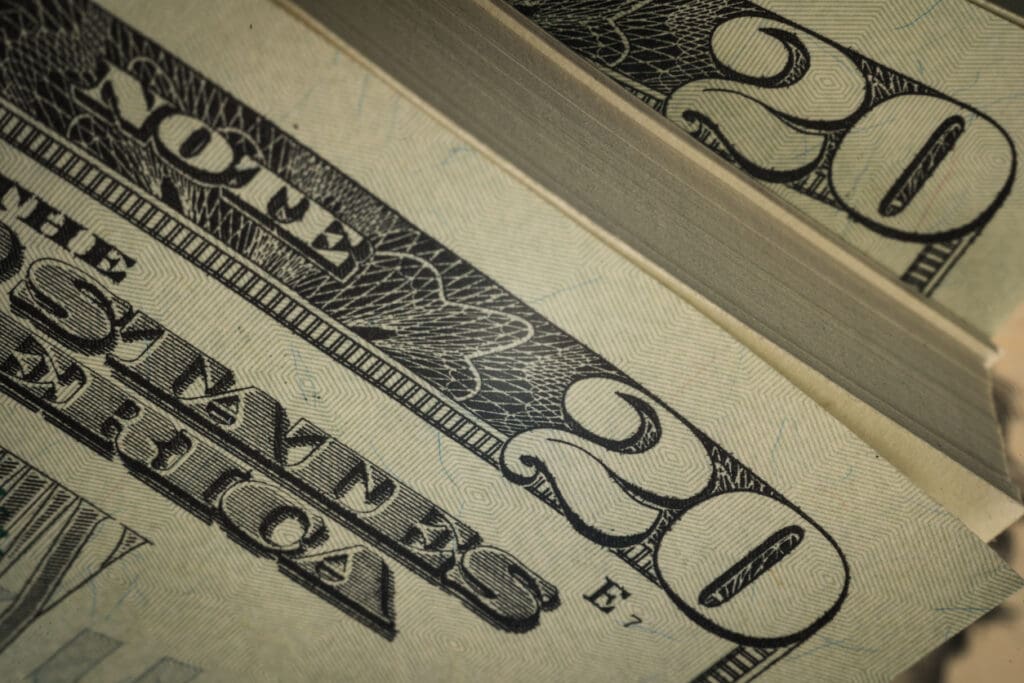5 Fundraising Lessons For ’25


The hunt for small-dollar contributors is easier for some candidates — namely, women.
These sought-after contributors are typically held up as proof of genuine grassroots support, especially when they’re local. Now, our recent analysis of campaign finance data for all 2024 congressional and state elections by candidate gender, race/ethnicity, and party found that women candidates are having an easier time collecting them than men.
For our latest report, Final Analysis: 2024 Women, Money, & Politics Watch, we analyzed campaign contributions for the total raised from individuals, proportion of funds from self-financing, and proportion of funds from small contributions. The report is the culmination of our Women, Money, & Politics Watch 2024 project that followed the money race throughout the 2024 cycle.
Our final analysis found differences at both congressional and state levels in how women and men raise money, including the greater likelihood that men financed their own campaigns. In fact, this dynamic was especially evident for Republican men candidates. We also found that women candidates often have a higher average share of contributions of $200 or less than men.
While we found that candidate gender is less important than factors such as incumbency status in shaping fundraising receipts, we do find some gender differences. In the congressional contests rated the most competitive by The Cook Political Report, women usually outraised men in woman versus man contests.
On the other hand, on several metrics, we found that the average total raised by Republican women candidates lagged behind Republican men. The patterns are less clear-cut for Republican women than for other candidate groups because the analyses are based on the relatively smaller number of Republican women candidates. Our research offers insights for fundraising strategies.
Fundraising Lessons for Women Candidates
1. Target small-dollar contributions. Women congressional and state candidates are usually more likely than men to raise money from small contributions of $200 or less — a dynamic that has persisted over time. This means that future women candidates are also likely to find success with small-dollar donations.
2. Women candidates should court women donors. We found that women’s political giving to congressional candidates was more likely to take the form of small contributions ($200 or less) compared with men’s political giving. And the average amount donated by women was lower than the average amount donated by men. At the same time, women often exceeded men as a proportion of unique donors. One takeaway is that candidates might be able to increase the amount requested from the large pool of women habitual donors.
3. Both parties should work to increase representation in their donor pools. We found large racial/ethnic donor gaps in the share of contributors and total amount contributed to congressional candidates. Women of color were especially underrepresented.
Meanwhile, my own public opinion research shows that Black women and Latinas view political giving as less effective than other civic and political activities including charitable giving. This suggests there’s room for candidates – especially candidates of color – to more successfully channel the political and charitable interests of underrepresented racial/ethnic groups towards political contributions.
4. Male candidates are more likely to self-fund their campaigns. We found that men usually have a higher proportion of funds from self-financing than women. As the costs of campaigns rise, self-financing may be an increasingly important mechanism for candidates. If women’s wages and occupational status continue to lag men’s, gender differences in the ability to self-finance are likely to persist.
5. Republican women should focus on reaching out to women donors on their side of the aisle. CAWP’s 2024 Election Watch found that far fewer women run as Republicans than Democrats, and women are underrepresented among all Republican candidates. This large gender gap in Republican candidates may be an opportunity — especially because we’ve found that women are usually more likely to donate to Republican women than Republican men candidates. Republican women may have greater success than Republican men in cultivating women donors.
Kira Sanbonmatsu is a Senior Scholar at the Center for American Women and Politics (CAWP) at the Eagleton Institute of Politics at Rutgers University. She leads CAWP’s Women, Money, and Politics project.
